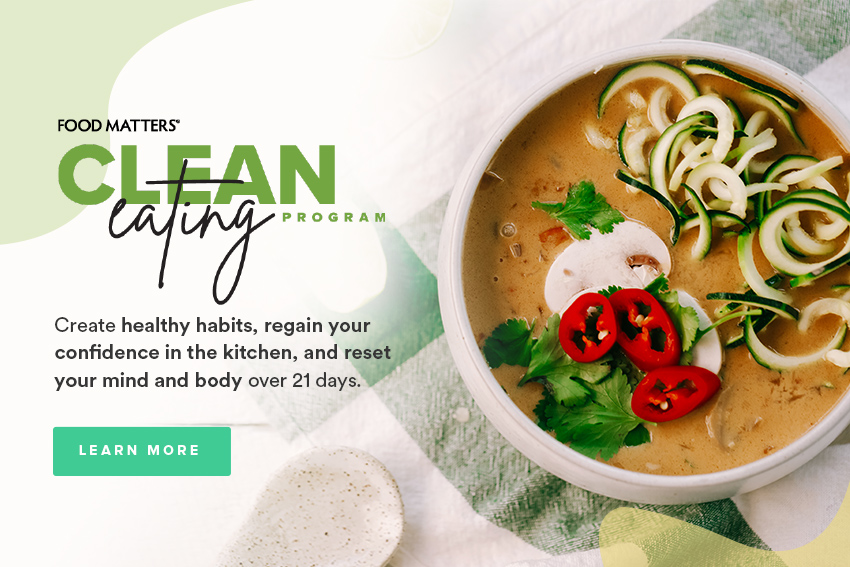Top 10 Collagen Boosting Foods
Collagen can be easily described as the “glue” that holds our bodies together, being the primary component of connective tissue, and is the most abundant protein in our body found in our muscles, bones, skin, tendons, hair and even the digestive system.
Collagen is known to improve circulation, help heal leaky gut syndrome and relieve joint pain. What makes collagen most popular in the health and wellness space, and earning the nick-name as the ultimate “inside-out” beauty product, is its natural ability to reduce wrinkles, improve hair quality and the appearance of cellulite. Collagen is the natural version of the anti-aging cream that many are guilty of spending a little bit too much of their hard-earned money on, and as it It turns out we don’t actually have to buy that $100 bottle of anti-aging cream, all we have to do is simply introduce more collagen-rich or collagen-boosting foods into our diets.
We’ve done the research to find the top 10 collagen boosting foods so you don’t have to spend those pretty pennies or put chemical-based creams on your face!
Why Do We Need Extra Collagen As We Age?
As we age, the body’s collagen production naturally begins to decrease, evident in the appearance of wrinkles, sagging skin and joint pains. Often, genetic defects, low intake of collagen-rich foods, nutritional deficiencies and digestive problems can impact the body’s ability to synthesize collagen. Additionally, lifestyle choices such as consuming high levels of sugar, smoking and extensive exposure to the sun can deplete collagen levels in the body and lead to premature aging.
Luckily we there are natural ways to reduce collagen depletion and promote collagen production through specific foods and minerals.
4 Foods That Are Naturally Collagen-Rich
1. Bone Broth
The highest concentrations of collagen in animal meats are found in the less appealing areas such as tendons, ligaments, cartilage, skin and bones. While you might not want to have a chew on these parts, you can benefit from their rich source of bioavailable collagen by slow cooking them into a broth which is far more appealing and easily consumed.
2. Spirulina
For those that keep to a vegan diet, Spirulina is a great source of glycine, a key component of collagen, which can be easily consumed in a healthy green smoothie.
3. Egg Whites
Egg whites contain large amounts of proline, an amino acid necessary for collagen production, so you can get a great collagen fix first up for breakfast! When you eat the whole egg, not just the whites, you can benefit from all the nutrients and minerals this complete meal provides.
4. Gelatin
One of the top collagen-rich foods available, gelatin is a protein derived from collagen that can be used in cooking, mixed into soups, or added stews or broths for a nutrient boost. You could even make yourself a healthy sweet jelly/jello treat made from nutrient-rich gelatin that comes in a number of forms including powder and sheets.
The Top Foods to Help Your Body Boost Collagen Production
1. Kiwi Fruit
Full of Vitamin C, Kiwi fruit helps the body to execute the pre-collagen production phase for your body to naturally generate more collagen.
2. Berries
Berries are also rich in Vitamin C, supporting collagen production, and they also contain Vitamin E and contain powerful antioxidants that help protect against the breakdown of existing collagen cells from toxins and prevent free radical damage.
3. Almonds
Almonds contain high levels of Vitamin E and copper, which supports collagen formation by partnering with Vitamin C and providing the essential trace elements needed in the final step of collagen synthesis.
4. Carrots
Responsible for repairing and restoring collagen in damaged skin is Vitamin A which comes in abundance in carrots and other orange vegetables and fruits (except orange!).
5. Green Leafy Vegetables
We all know that dark green, leafy vegetables are superfoods with so many benefits that we include them in almost every meal! When it comes to promoting collagen production, these superheroes of the plant world bring a trio of powers - Vitamin A, Vitamin C, and Vitamin E - which are all vital components of collagen synthesis.
6. Oysters
Being rich in zinc, oysters both stimulate collagen synthesis as well as slow down the rate of collagen cell breakdown in granulation tissue, enabling wounds to heal more quickly.
How do you get your collagen fix? Tell us in the comments below.
Take the stress out of cooking with 21-days of guided meal plans, shopping lists, and nutrition support. You’ll find all of this, and more, in our signature Clean Eating Program.









